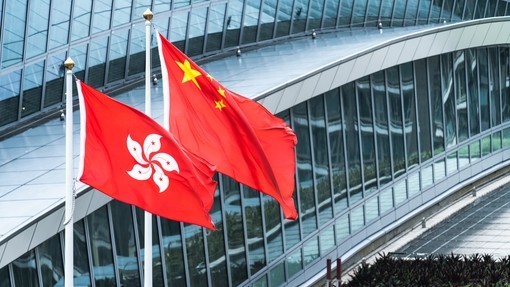An unforeseeable circumstance: coronavirus, force majeure and contract law

Details
Please note: our updated article, published on 17 March 2020, covers:
• parties operating a business as usual policy as much as possible
• considerations for businesses entering into new contracts against the present coronavirus outbreak
• key considerations – force majeure clauses, termination rights, MAE clauses, representations and warranties
Introduction
The World Health Organization now considers coronavirus to be a global health emergency and entire cities in China, and all of Italy, have been quarantined. Coronavirus or COVID-19 is now classified as a pandemic. Other European regions and countries are expected to follow Italy’s lead, but at the moment the UK is delaying taking such steps. It is not too early for businesses to try to mitigate the losses that coronavirus could bring, taking particular notice of force majeure clauses in existing and potential new contracts.
What is force majeure?
Parties have limited remedies under English common law when a contract becomes impossible to perform. Contracting parties can get around this by including a force majeure clause in their contracts. The purpose of a force majeure clause is to excuse a party from performance of a contract following the occurrence of an event beyond the reasonable control of the party which has hindered contractual performance or made it impossible.
Force majeure events are those that are unforeseeable and unavoidable and, in business contracts, excuse a party from contractual obligations if they prevent their performance. Force majeure provisions can be found in many commercial English law contracts and, in times like these, can be a valuable resource in determining how parties can navigate performance when issues are out of their control.
Force majeure clauses will typically include:
- Specific events (i.e. pandemics, acts of terrorism, war, natural disasters)
- Events that are beyond the ‘reasonable control’ of the party, the consequences of which could not be foreseen or avoided, making the performance of obligations impossible (i.e. more than just more difficult or uneconomical)
- A requirement that the claiming party give notice to the other(s) detailing the force majeure event and a procedure to circumvent the effect of force majeure
- The relief provided (i.e. suspension of the contract, extended time for performance, relief from liability for breach or termination of the contract if the event subsists for a specific period of time)
Creating contractual certainty
English law does not define what force majeure is and it does not apply unless the parties agree that it should (in the relevant contract). Therefore, it is important for businesses to describe what force majeure means for them and to set out the applicable procedures if a party invokes a force majeure event. In a world hit by the coronavirus, it would be prudent to extend the definition of force majeure to include pandemics, quarantine or travel restrictions.
Invoking a force majeure clause
Force majeure can be invoked only if the contract explicitly provides for it, refers to the event as a force majeure event and will, even then, apply only if there is a link between the non-performance and the claimed force majeure event. The burden is on the party seeking to rely on the force majeure clause to prove that its inability to perform was caused by the force majeure event. In February, the China National Offshore Oil Corp (CNOOC), which is China’s biggest importer of liquefied natural gas, announced that it had invoked force majeure to suspend its contracts with at least three suppliers, citing the coronavirus outbreak. CNOOC will have to produce proof that it was unable to perform its side of a contract due to the outbreak or face a claim for breach of contract from its suppliers. That doesn’t, however, help the counter-parties to the CNOOC contract who may suffer short-term financial problems as a result of the CNOOC decision, and who may not wish to take legal action against CNOOC as they want to do business with them again, cannot afford litigation, or simply for fear of negative publicity (appearing unsupportive or unsympathetic or unpatriotic in not recognising the significance of the pandemic facing China).
Reacting to a force majeure notice
It would be prudent:
- To review the contract to check whether there is a force majeure clause
- To identify the governing law of the contract and any jurisdiction clause
- To review the force majeure clause to determine whether coronavirus qualifies as such an event and the consequences of non-performance
- To require the party claiming force majeure to provide:
- details of the circumstances allegedly preventing its performance
- updates regarding its efforts to resume performance or mitigate the non-performance
- To consider negotiating a written amendment to the contract to reflect a commercially sensible resolution
Force majeure clauses are often overlooked or are included as standard boilerplate clauses in commercial contracts. The impact of the coronavirus has highlighted the importance of tailoring force majeure clauses to the contracts that they are intended to protect. Global stock markets have fallen sharply in the past month as investors continue to worry about the broader economic effects of the coronavirus. Properly understanding and implementing well-drafted force majeure clauses in your commercial contracts can give you and your business more certainty in an uncertain business climate.
Other practical steps
Rather than waiting for a force majeure notice it is worth businesses reviewing their material contracts and getting ahead of the issue, contacting counter-parties and agreeing how existing terms might be amended. Companies can generate significant goodwill in recognising the issues faced by the public and businesses (the recent decision by RBS to suspend mortgage payments for some customers being a good example).
Our firm is advising clients on various issues related to the coronavirus. Our dispute resolution, commercial, commodities, and health teams can advise you on the drafting, enforceability and invocation of force majeure clauses in your existing or potential new contracts. We can also provide sensible, pragmatic advice to ensure long-term valuable commercial partnerships are not irreparably damaged by disputes or non-performance of contracts over the coming weeks and months.
For further updates and other articles discussing the impact of the coronavirus please view our coronavirus hub.





